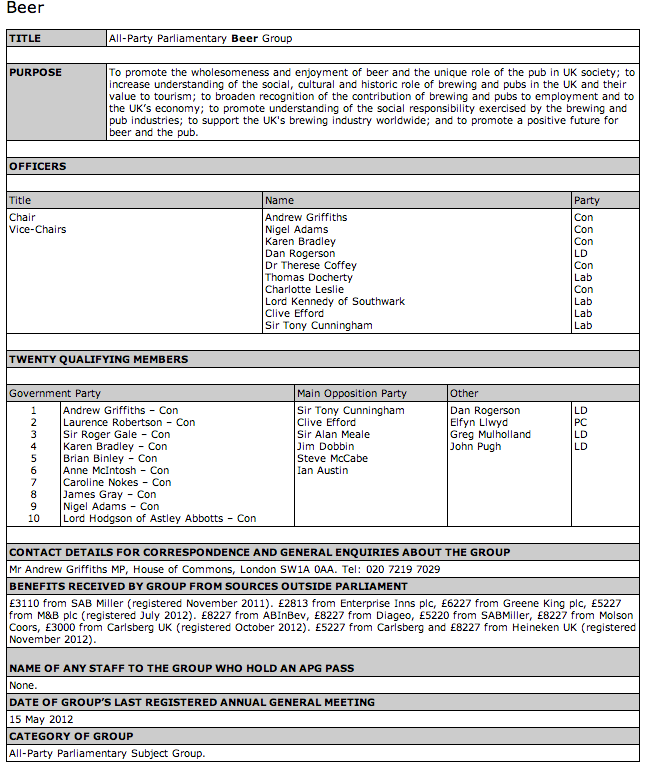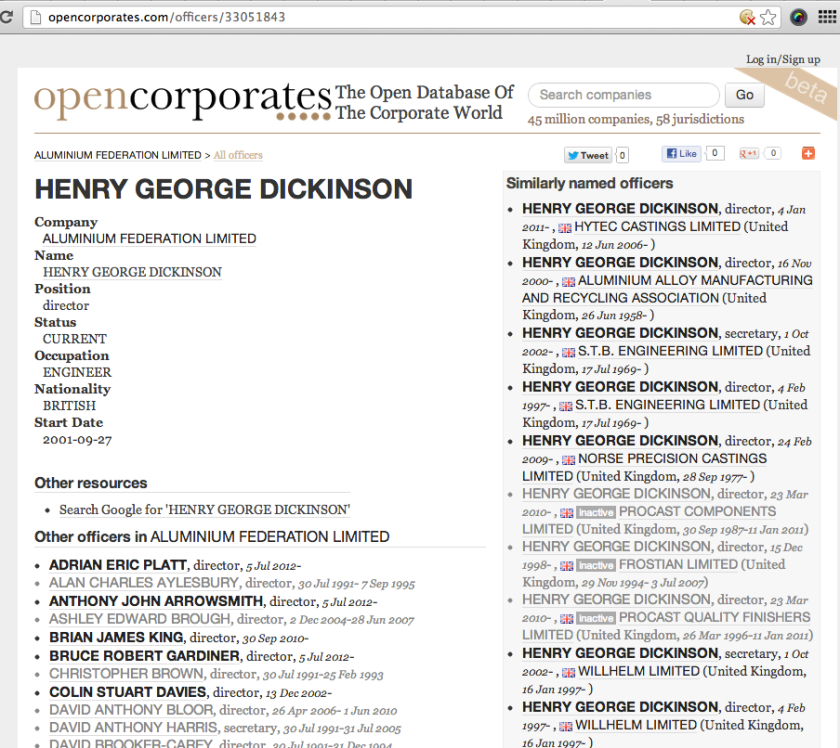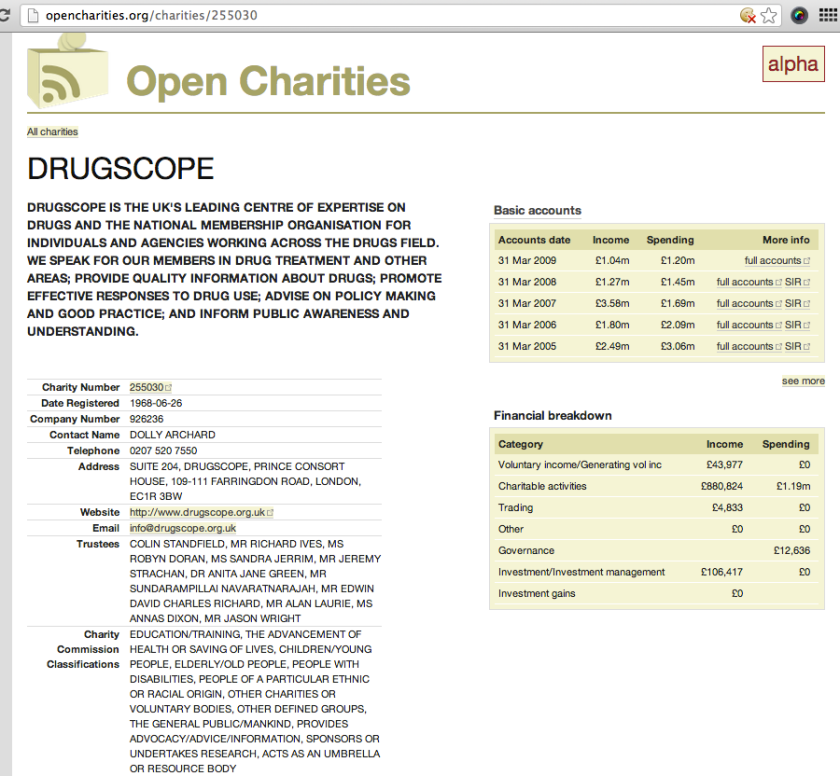Via a tweet from the author, I came across Rob Fenwick’s post on APPGs – the next Westminster scandal? (APPG = All Party Parliamentary Groups):
APPGs are entitled to a Secretariat. Set aside any images you have of a sensibly dressed person of a certain age mildly taking dictation, the provision of an APPG Secretariat is one of the main routes used by public affairs agencies, charities, and businesses to cosey up to MPs and Peers. These “secretaries” often came up with the idea of setting up the group in the first place, to advance the interests of a client or cause.
The post describes some of the organisations that provide secretariat services to APPGs, and in a couple of cases also takes the next step: “Take the APPG on the Aluminium Industry, the secretarial services of which are provided by Aluminium Federation Ltd which is “a not-for-profit organisation.” That sounds suitably reassuring – if the organisation is not-for-profit what chance can there be of big business buying favoured access? It’s only when you look at the Federation’s website, and examine each of its nine sub-associations in turn, that it becomes clear that this not-for-profit organisation is a membership umbrella for private business. This is above board, within the rules, published, and transparent. Transparent if you’re prepared to invest the time to look, of course.”
It’s worth reading the post in full… Go on…
… Done that? Go on.
Right. Here’s the list of registered All Party Groups. Here’s an example of what’s recorded:
Conveniently, there’s a Scraperwiki scraper (David Jones / All Party Groups) grabbing this information, so I though I’d have a play with it.
Looking at the benefits, there is a fair bit of convention in the way benefits are described. For example, we see recurring things of the form:
- 5000 from CAFOD, 6000 from Christian Aid – that is, [AMOUNT] from [ORGANISATION]
- Age UK (a charity) acts as the groups secretariat. – that is, [ORGANISATION] {(OPTIONAL_TYPE)} acts as the groups secretariat.
We could parse these things out directly (on the to do list!) but as a short cut, I thought I’d try a couple of content analysis/entity extraction services to see if they could pull out the names of companies and charities from the benefits list. You can find the scraper I used to enhance David Jones’ APPG scraper here: APG Enhancer.
Here are a couple of sample reports from my scraper:
This gives a first pass attempt at extracting organisation (company and charity) names from the APPG register, and in passing provides a partial directory for looking up companies by APG (partial because the entity extractors aren’t perfect and don’t manage to identify every company, charity, association or other recognised group.
A more thorough way to look up particular companies is to do a site’n’path limited web search: eg
aviva site:http://www.publications.parliament.uk/pa/cm/cmallparty/register/
How might we go further, though? One way would be to look up companies on OpenCorporates, and pull down a list of directors:
And then we can start to walk through the database of directors, looking for other companies that appear to have the same director:
(Note: we need to watch out for false positives, whereby one director has the same name as another person who is also a company director. There may be false negatives too, where we don’t find a directorship held by a specific person because a slightly different variation of their name was used on a registration document.)
We can also look up charities on OpenCharities to find charity trustees:
If we’re graph walking, we might then look up the trustees on OpenCorporates to see whether or not the trustees are directors of any companies with possible interests in the area, and as a result identify companies who may be trying to influence Parliamentarians through APPGs that benefit from the direct support of a charity, via that charity.
In this way, we can start to build out a wider direct interest graph around a Parliamentary group. I’m not sure how useful or even how meaningful any of this actually is, but it’s increasingly possible, and once the scripted patterns are there, increasingly easy to deploy in other contexts (for example, wherever there is a list of company names, charity names, or names of people who may be directors. I guess a trustee search on OpenCharities may also be available at some point? From a graph linking point of view, I also wonder if any charities share registered addresses with companies, etc…)
PS by the by, here’s a guest post I just wrote on the OpenCorporates blog: Data Sketching With the OpenCorporates API.



